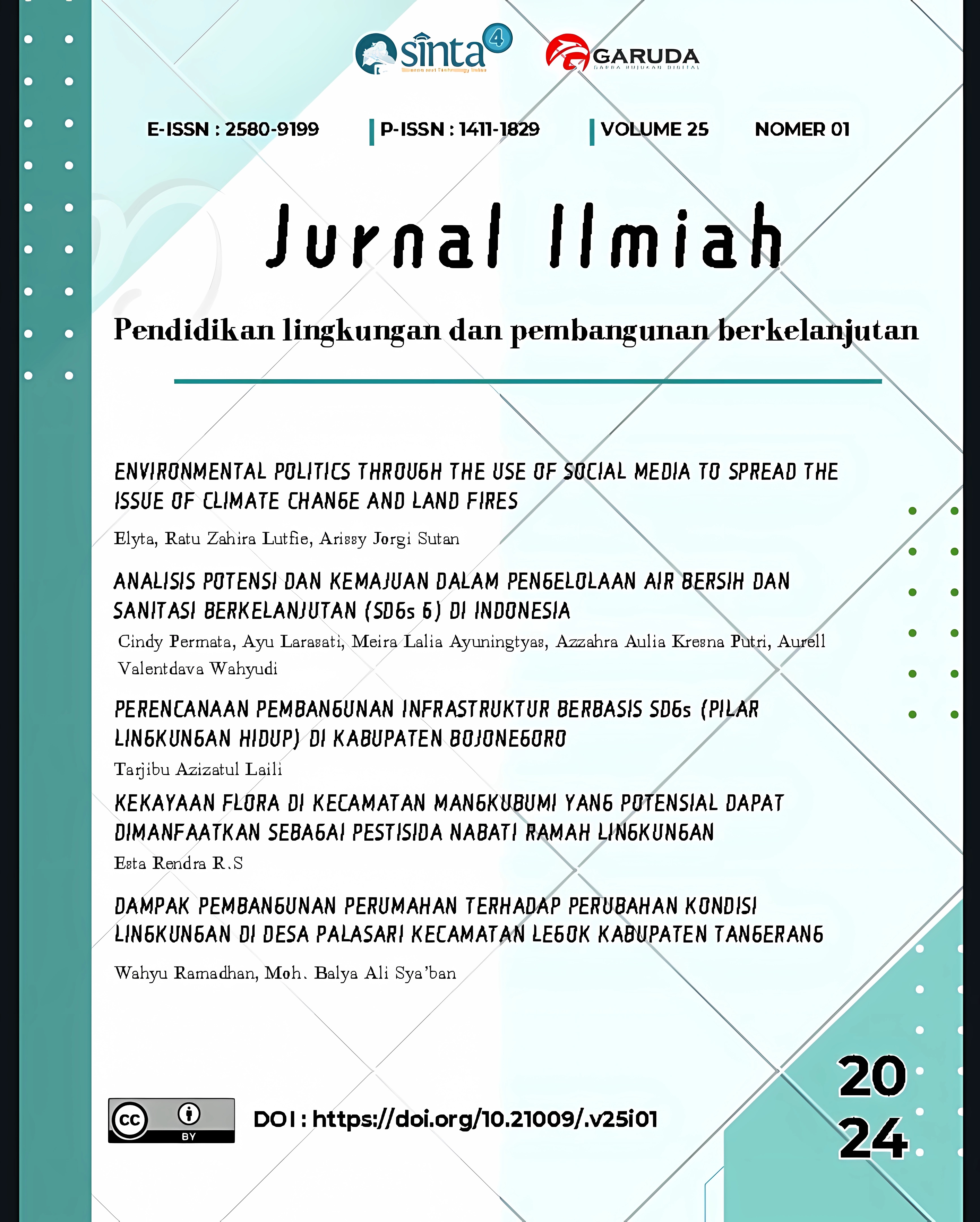Analisis Potensi dan Kemajuan dalam Pengelolaan Air Bersih dan Sanitasi Berkelanjutan (SDGs 6) di Indonesia
DOI:
https://doi.org/10.21009/plpb.v25i01.40440Keywords:
Clean Water, Sanitation, Development and SustainableAbstract
The aim of this research is to provide an analysis of how efforts have been made to achieve Sustainable Development Goal number six (SDGs 6), namely Clean Water and Sanitation. The main focus of this research is to assess the implementation of policies and projects related to water and sanitation and understand the impact they will have on society and the environment. This study collects data from government reports and other relevant research. Universal access to clean drinking water, adequate sanitation, efficient water use, and protection of water ecosystems are the main indicators of SDGs 6. The research results show great progress in achieving SDGs 6 in several aspects. Access to clean water has increased and many sanitation projects have been implemented successfully. Challenges remain, especially in achieving sanitation goals in rural areas and in managing water quality. Integrated water resource management and protection of water ecosystems are highlighted in this analysis. The research also underscores the need for international cooperation and community participation in addressing clean water and sanitation challenges. Data limitations and unequal access continue to be important issues that need to be addressed. Therefore, this study recommends increased detailed data collection and capacity building of local communities. By detailing the challenges and potential solutions, this research contributes to a deeper understanding of achieving SDGs 6. The implications of these findings can help civil society in designing more effective policies and projects to achieve clean water and sustainable sanitation.








